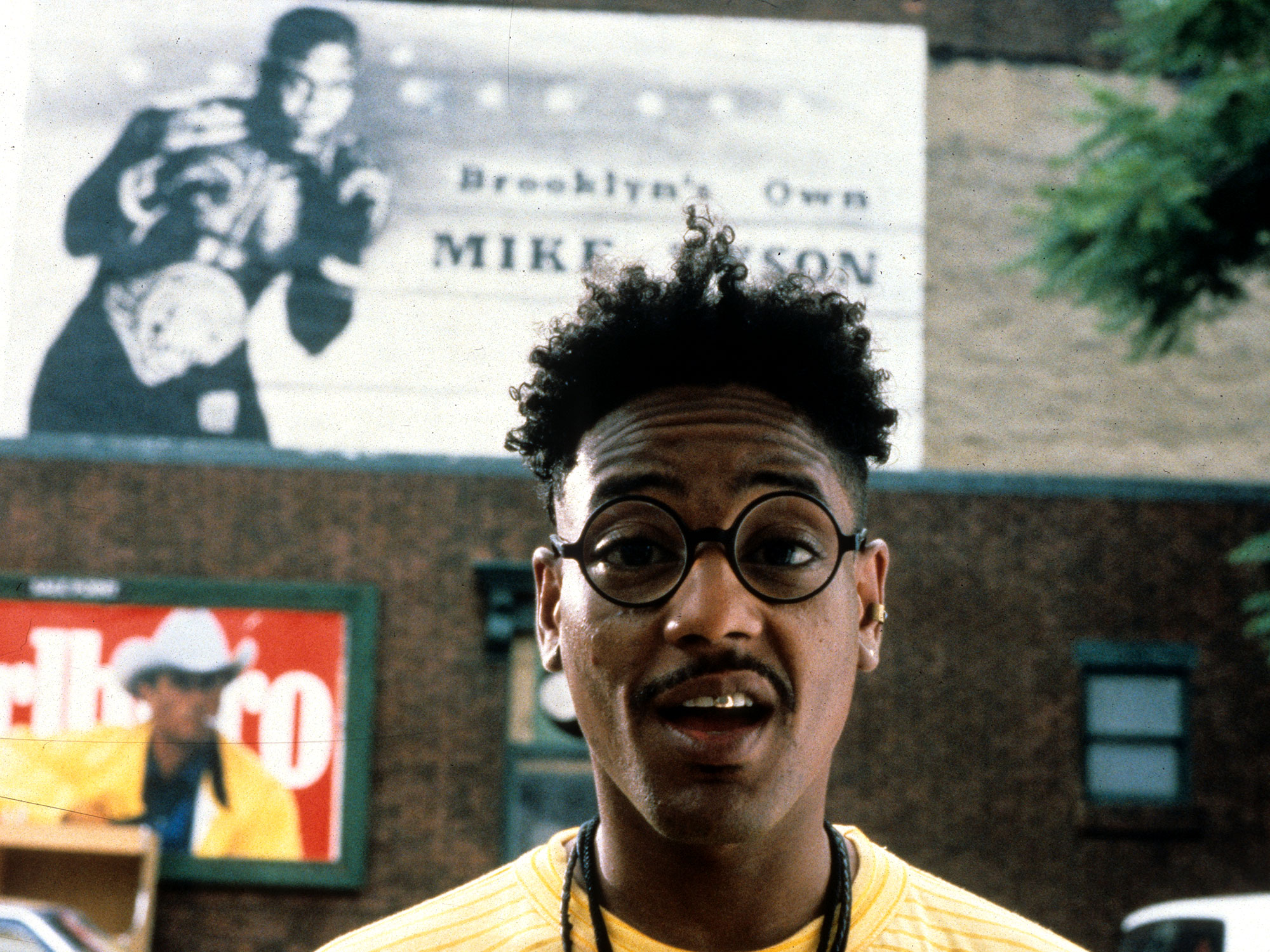
Despite 30 years having passed since the film’s explosion onto the national stage (complete with panic from some white critics that it would cause riots in the streets), there’s no denying the staying power of Do the Right Thing. Just as it was in 1989, Spike Lee’s fourth feature is painfully relevant to the current cultural moment; filled with discussions of gentrification, police brutality, the denial of Black people’s right to protest, the fact that so many of our heroes are made invisible.
It opens with a burst of energy, Rosie Perez making an incredible first impression as she furiously dances and boxes to the sound of Public Enemy’s anthem ‘Fight The Power’, a song that appears throughout the film. The cry of ‘wake up!’ almost directly carries over from Lawrence Fishburne in the final moments of Lee’s previous film, School Daze, to Samuel L Jackson’s fast-talking radio jockey Mr Señor Lovedaddy, acting as the voice of reason for the neighbourhood from his secluded studio.
Taking place over the course of a single day in Bed-Stuy during an uncomfortably hot summer, the film stitches incidental scenes together as it explores the neighbourhood from the point of view Mookie (Lee himself), a delivery boy for the local pizzeria run by the Italian American Sal (Danny Aiello). Rather appropriately, Mookie is observational and passive, and Lee plays his mellow, reactive presence well as he wanders through the day, interacting with people in the neighbourhood. This particularly hot day brings simmering resentments within the community to the surface – racism, frustration at their neighbours’s failures, and the institutions that rule them.

Every character, no matter how minor they may seem, exudes so much personality. There’s Buggin’ Out (Giancarlo Esposito), kicking up a lot of passionate fuss at the drop of a hat, Radio Raheem (Bill Nunn) with his boombox blasting ‘Fight The Power’ on repeat, the stern but loving Mother Sister (Ruby Dee), the kindly, functioning alcoholic Da Mayor (Ossie Davis).
Lee’s oft-maligned scattershot style of storytelling works to perfection here, creating irreplaceable parts of a neighbourhood collage that feels truly alive, with all the messiness that entails. It’s part of why the moments of anger feel so visceral. This is enhanced by some astonishing filmmaking craft, from the elegant camerawork, to the swooning, jazzy score from Spike’s father Bill Lee, to Ruth E Carter’s vibrant costume design.
Almost everyone in the film is just as capable of hatred as they are kindness, perhaps the most memorable instance prior to the final act being a montage of characters spitting cruel, racist insults about each other straight down the camera. Watching Do the Right Thing today, it is striking how Radio Raheem’s death recalls the loss of so many black lives at the hands of police, not least Eric Garner.
It’s a painful and poignant moment, especially in light of the recent news that the officer responsible for Garner’s murder will not be charged; institutions once again prioritised over people’s lives. Lee’s film remains a bold expression of love and frustration and care and anger that is so vivid and expressive it feels like it exists in the here and now.
The post Do the Right Thing (1989) appeared first on Little White Lies.
![Forest Essentials [CPV] WW](https://s3-us-west-2.amazonaws.com/pcw-uploads/logos/forest-essentials-promo-codes-coupons.png)
0 comments